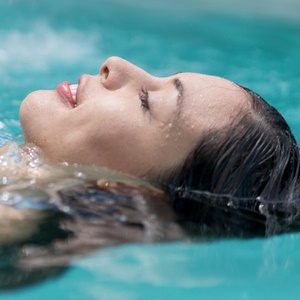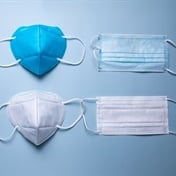
Do you enjoy swimming in a pool or the ocean? You could, however, be jeopardising your hearing if you are not careful.
While swimming doesn’t cause hearing loss per se, it can cause a condition which may affect your hearing later in life if not managed properly.
How does swimming affect your ears?
Swimming can lead to a common ear condition called otitis externa or swimmer’s ear, which occurs when your ears are subjected to a bacterium found in natural bodies of water, such as the ocean, lakes or rivers. Swimmer’s ear can, however, also be contracted through pools that are not properly treated with chlorine. It can even happen after taking a shower, as any type of water exposure can compromise the ear. This condition causes the tube between the outer ear and the eardrum to become inflamed.
Swimmer’s ear usually only happens after repeated exposure to water, but sometimes just a few drops can cause discomfort and irritation. Water in the ear compromises the protective wax barrier that protects the ear against bacteria and infections.
When things get severe
Symptoms can include moderate to severe ear pain, itchiness, a degree of temporary hearing loss, and a liquid discharge from the ear.
Swimmer’s ear is often mild and can be treated by simply keeping the ears dry for a while, or using over-the-counter ear drops. But in extreme cases, swimmer’s ear can escalate into an ear infection, which can cause a fever and complete blockage of your ear channel. Contact your doctor if initial symptoms don’t clear up in a few days and you are experiencing the following:
- Increasing redness in the ear
- A discharge (pus)
- A feeling of fullness and partial blockage of your ear canal
- Any form of swelling
- Decreased hearing
When swimmer’s ear isn’t treated properly, it can lead to the following complications:
- Chronic ear infection, which will increase your chances of hearing loss as you age
- An infection of the surrounding bone and cartilage
- Temporary or permanent hearing loss when the infection becomes severe and causes damage to the inner ear. This is rarely caused by a simple case of swimmer’s ear, but if the damage is severe, it can permanently impact your hearing.
Swimming and hearing aids
And what if you already wear a hearing aid? Should you forego swimming? There is no reason not to go for a dip.
If you wear a hearing aid, you should remember that most hearing aids are moisture-resistant, but not designed to be fully submerged under water. However, if you lead an active lifestyle, you can talk to your hearing specialist about a water-resistant hearing aid or coating your hearing aid with a surface material to keep the water out.
It’s also important to regularly maintain your hearing aid by properly storing it when it’s not in use. Always follow the manufacturer's guidelines and keep your hearing aid clean and disinfected. Proper, regular servicing will also prolong its life and help detect any damage.
Protect your ears this summer
Whether you are experiencing hearing loss or are simply prone to swimmer’s ear and other ear infections, there are some measures that you can take to reduce your risk of problems caused by water exposure:
- Inspect the pool water and make sure it’s chlorinated and clean. Don’t swim in dodgy, stagnant pools as these can harbour dangerous bacteria.
- If you use a waterproof music player and earphones, make sure you keep the earphones clean and store them properly.
- Earplugs or a swimming cap can reduce the amount of water going into the ear, but make sure that these are kept in pristine condition and dried properly after use.
- Always clean and dry your ears properly after swimming.
- Attempt to drain any water out of your ears by tilting your head to the side.
- Do not try to open up any blockages with an earbud, as this can push wax deeper into the ear canal and potentially cause damage.
- Seek medical help immediately if you experience severe ear pain or even sudden partial hearing loss after swimming.
Image credit: iStock




 Publications
Publications
 Partners
Partners















